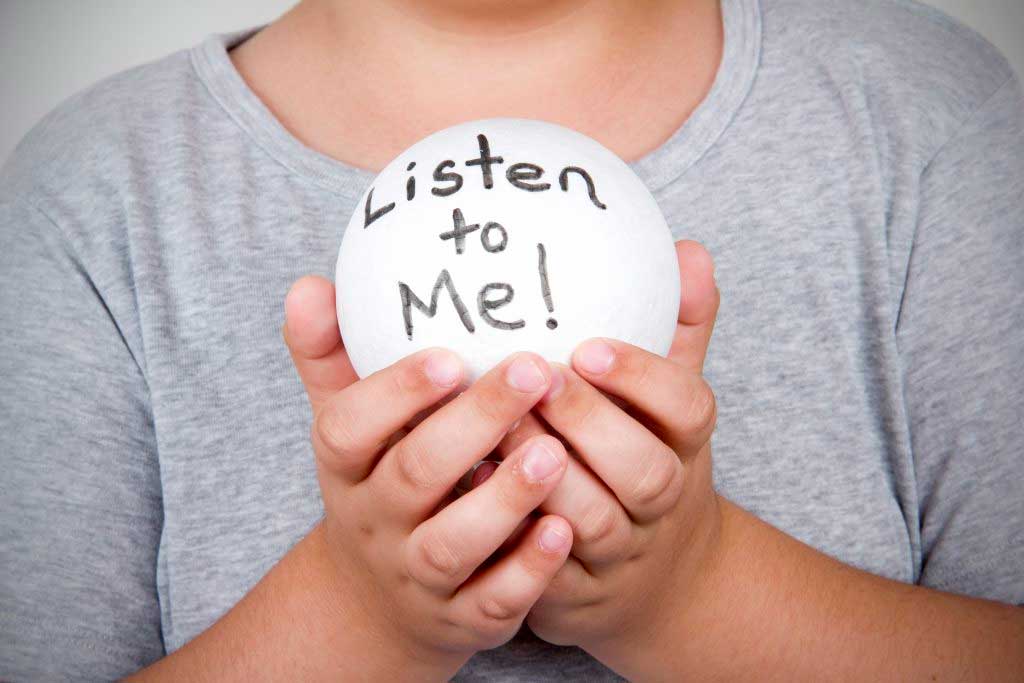The quality of our relationships often hinges on our ability to connect with others. Listening plays a fundamental role in this. But do we listen ‘actively’ in our everyday lives? Or, instead, do we just want our opinion be voiced in a conversation?
How do we listen?
We’re not as good at listening as you might think. We’re masters of everyday chit-chat, yet fall short of recalling 25-50% of what we’ve heard. We merely just hear what the other person says and promptly repost. Sometimes by interrupting, we effectively shut down our partner. What seems important for us is that we appear knowledgeable, able and authoritative.
When somebody wants your attention they hope that you notice and acknowledge a need expressed by them. So by believing that your opinion is The Only Truth and quickly sharing it, you dig a trench between the speaker and yourself. It is far from attending to that need of the other person. Judging, criticising, fixing, concluding, forming verdicts ultimately makes the recipient feel uncomfortable.
Why do we do this?
Like everything in human nature, this phenomenon has an evolutionary function. People are problem solving creatures, equipped with the world’s largest ‘computer’, the human brain. It is great in noticing what’s wrong and what can be done to make it better. Our brain loves categorising, comparing and sorting out what’s dangerous and what’s safe. So sharing information with other members of the ‘tribe’ was key to our survival.
At a later stage during our evolution a strong, emotional drive to connect and belong started to become prominent. The connecting, affiliating part of the brain, however, can only be active when a person feels safe. Criticism or judgment turns on the brain’s ‘smoke detector’, the amygdala. When our fear centre is activated, we cannot establish the emotional connection we hoped for.

What does active listening mean?
Active listening is paying undivided attention to the speaker without an agenda on our part to fix, solve or judge anything we are about to hear. Instead we need to try to detect how the person next to us is feeling and what their emotional needs are in that moment. We are displaying empathy and openness.
His Holiness the Dalai Lama compares talking and listening when he says “When you talk, you are only repeating what you already know. But if you listen you may learn something new.”
Jordan Peterson, the author of 12 Rules of Life, says “Assume that the person you are listening to might know something you don’t.” Peterson recommends approaching a conversation as “a form of mutual exploration.” Merely waiting for someone to finish a sentence to launch your own thoughts does not make for any sort of conversation at all, he posits.
Whether at home or at work, the skill of active listening is a positive game-changer in our relationships with others. Let’s see how it works.

How can we learn this skill?
The first step is to figure out why we need to give advice or share our view in the first place. “What do I need to show or prove and why?”. Listening is not just hearing, we can make a conscious decision to master it. It requires patience but investing into our relationships can bring more satisfaction and happiness to all of us.
- Allow the speaker to be heard without interruption.
- Ask for further details or clarifications only when appropriate.
- Reflect what you sense about how the other person is feeling, such as: “I can see how angry you are.” or “I hear you are under a lot of pressure.”
- Be empathetic: try to see the world through the speaker’s eyes.
- Ask open ended questions to give more opportunities to the speaker.
- Pause. An interested silence is an invitation to tell more.
- Refrain from voicing your opinion unless it is asked for.
The non-verbal aspects of active listening
- Keep an interested eye-contact (where culturally appropriate).
- Nod and use short verbal encouragers to signal that you are present and encourage the speaker to continue.
- Maintain an open posture (sitting or standing cross-armed may indicate your hidden disapproval or disengagement).
- Tapping away on your mobile phone is definitely a no-no.



